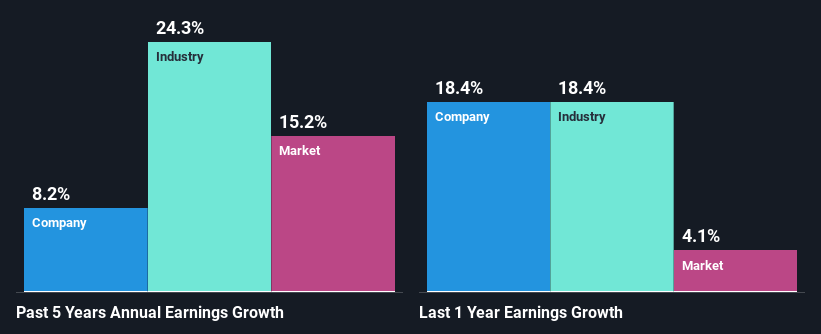Could The Market Be Wrong About Ferrari N.V. (NYSE:RACE) Given Its Attractive Financial Prospects?
With its stock down 1.7% over the past three months, it is easy to disregard Ferrari (NYSE:RACE). However, stock prices are usually driven by a company’s financial performance over the long term, which in this case looks quite promising. Specifically, we decided to study Ferrari's ROE in this article.
Return on equity or ROE is an important factor to be considered by a shareholder because it tells them how effectively their capital is being reinvested. Put another way, it reveals the company's success at turning shareholder investments into profits.
View our latest analysis for Ferrari
How To Calculate Return On Equity?
Return on equity can be calculated by using the formula:
Return on Equity = Net Profit (from continuing operations) ÷ Shareholders' Equity
So, based on the above formula, the ROE for Ferrari is:
40% = €1.1b ÷ €2.7b (Based on the trailing twelve months to June 2023).
The 'return' is the income the business earned over the last year. That means that for every $1 worth of shareholders' equity, the company generated $0.40 in profit.
What Is The Relationship Between ROE And Earnings Growth?
So far, we've learned that ROE is a measure of a company's profitability. Based on how much of its profits the company chooses to reinvest or "retain", we are then able to evaluate a company's future ability to generate profits. Generally speaking, other things being equal, firms with a high return on equity and profit retention, have a higher growth rate than firms that don’t share these attributes.
Ferrari's Earnings Growth And 40% ROE
To begin with, Ferrari has a pretty high ROE which is interesting. Secondly, even when compared to the industry average of 17% the company's ROE is quite impressive. Probably as a result of this, Ferrari was able to see a decent net income growth of 8.2% over the last five years.
We then compared Ferrari's net income growth with the industry and found that the company's growth figure is lower than the average industry growth rate of 24% in the same 5-year period, which is a bit concerning.
Earnings growth is a huge factor in stock valuation. The investor should try to establish if the expected growth or decline in earnings, whichever the case may be, is priced in. By doing so, they will have an idea if the stock is headed into clear blue waters or if swampy waters await. If you're wondering about Ferrari's's valuation, check out this gauge of its price-to-earnings ratio, as compared to its industry.
Is Ferrari Efficiently Re-investing Its Profits?
With a three-year median payout ratio of 29% (implying that the company retains 71% of its profits), it seems that Ferrari is reinvesting efficiently in a way that it sees respectable amount growth in its earnings and pays a dividend that's well covered.
Besides, Ferrari has been paying dividends over a period of seven years. This shows that the company is committed to sharing profits with its shareholders. Upon studying the latest analysts' consensus data, we found that the company is expected to keep paying out approximately 34% of its profits over the next three years. Accordingly, forecasts suggest that Ferrari's future ROE will be 35% which is again, similar to the current ROE.
Conclusion
On the whole, we feel that Ferrari's performance has been quite good. Specifically, we like that the company is reinvesting a huge chunk of its profits at a high rate of return. This of course has caused the company to see a good amount of growth in its earnings. With that said, the latest industry analyst forecasts reveal that the company's earnings are expected to accelerate. To know more about the latest analysts predictions for the company, check out this visualization of analyst forecasts for the company.
Have feedback on this article? Concerned about the content? Get in touch with us directly. Alternatively, email editorial-team (at) simplywallst.com.
This article by Simply Wall St is general in nature. We provide commentary based on historical data and analyst forecasts only using an unbiased methodology and our articles are not intended to be financial advice. It does not constitute a recommendation to buy or sell any stock, and does not take account of your objectives, or your financial situation. We aim to bring you long-term focused analysis driven by fundamental data. Note that our analysis may not factor in the latest price-sensitive company announcements or qualitative material. Simply Wall St has no position in any stocks mentioned.

